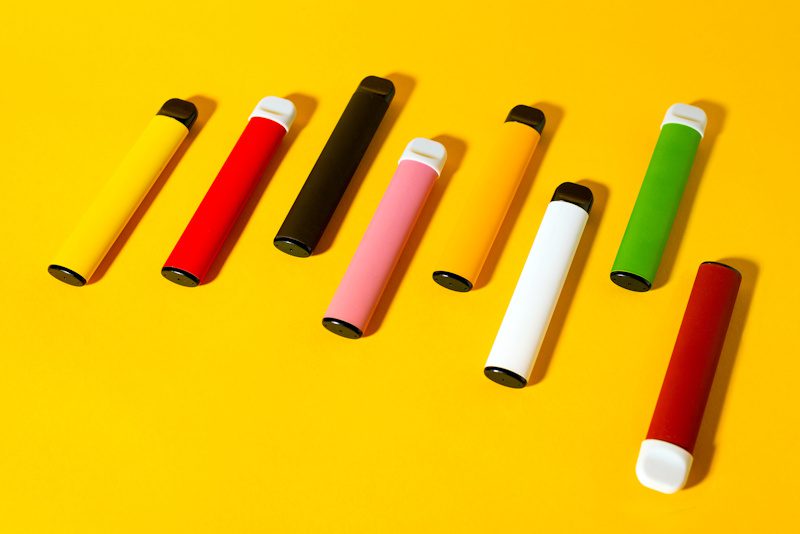Recently, the Prime Minister announced a ban on disposable vapes and to limit eLiquids to four flavour profiles. The plans were described by expert Clive as a “wrongness gripping UK tobacco and vape policy”. Rishi Sunak says it is being done to prevent children vaping but overlooks that the 15yr-old child smoking rate has dropped from 30% to 3% and vape bans have been shown to increase childhood smoking. Regardless of opinions or research seeing what happens when such measures are put in place, how can the vape industry respond?

Clive Bates used to lead Action on Smoking and Health and is now a recognised around the world as an expert on vaping and tobacco harm reduction. He says the Department of Health and Social Care and the Chief Medical Officer for England “have lost sight of the prize: to reduce smoking to below 5% by 2030. Instead, they have been derailed by a moral panic when they should be a voice of calm and reason.”
Bates says the Prime Minister’s proposals “will have negligible impact other than blocking better ideas”, adding that the 3% smoking figure was in 2021 and will be even lower today.
Clive Bates believes that bans on safer products have three main effects: Adverse behaviour change (for example, people switching back to smoking, smokers smoking more, and fewer quitters), feeding demand into black markets serviced by criminals, and users seeking out risky workarounds.
“They don’t solve real or perceived problems, they make them worse,” Clive adds.
Are vapes important to retailers?
According to the independent retail trade, vape products are now hugely important to the independent sector. The profits that vaping drives are described as “huge”. Typically, a store such as One Stop can earn 10% profit from a packet of cigarettes, but this soars for them to 50 or 60% on an electronic cigarette product.
Chris Noice, Director of communications for the Association of Convenience Stores, says that “customers are buying a lot and they are saying they want to give up smoking.”
Sue Nithyanandan, an independent retailer who runs a Costcutter in Epson with her husband, agrees that vapes are contributing a lot to the bottom line for independent stores. More than that, she doesn’t believe a lot of stores would continue to exist were it not for vapes thanks to the pressures they are facing from the constantly rising costs incurred in running a business during the cost-of-living crisis.
The Intelligent View
ECigIntelligence is a company that has been analysing data and delivering insight about the electronic cigarette market to the industry and investors since 2014. Its commentators believe the disposable/single-use vape ban could offer up an opportunity to the industry rather than being a set-back and jeopardising growth.
ECigIntelligence believes that the ban will see the removal of many subpar products from retail outlets as well as reducing teen use and waste. It feels that these impacts will boost consumer confidence in vaping and the vape industry through the development of new devices and lead to further increases in sales.
Agreement on the likely way forward
Legislation invariably sparks innovation as entrepreneurs seek to find alternative or more attractive routes to market. When the Tobacco Products Directive limited e-liquid bottles to a maximum capacity of 10ml, the shortfill market was created almost overnight.
Speaking about the inevitability of the ban on disposable ecigs and how Labour and the Conservatives are of a single mind on the issue, David Shrimpton, Talking Retail’s Editor, recently commented: “The move, however, may not amount to the financial cliff-edge that some retailers fear. A recent survey by vape shop operator Vape Superstore found 70% of users said they would switch to a refillable pod device if disposables were banned.”
Considering pod systems reuse the electronic componentry and the lithium-ion power supply, costs are drastically slashed and therefore more profitable to retail than sealed single-use devices while maintaining the ease of use favoured by single-use device vapers.
Disposable companies already making changes to their product lines
Milton Keynes-based Riot Labs was already making strides forward by improving the environmental sustainability of its disposables range with the world’s first carbon negative vape. The company rapidly sprang into action with the launch of its new Riot Connex pod system, which also lays claim to being a carbon negative product.
Ben Johnson, Riot Labs founder in 2016, heralded the revolutionary approach to sustainable vaping by saying: “As purse strings continue to be tightened, thanks to its rechargeability, Connex also delivers excellent value for money. The 1,200 puff kit is double the industry average. Vaping is such an important tool in the arsenal for someone who wants to quit smoking – that was a unifying thought throughout development.”
Utilising recycled plastics and a reusable power unit that can go through around 500 charging cycles, Riot’s innovative system delivers “serious flavour” via its mesh coil.
Even disposable vape giant Lost Mary is getting in on the shift to pod systems with the launch of its Tappo rechargeable pod. Retaining the shape and style of their popular single-use vapes, the Lost Mary Tappo utilises prefilled 2ml pods that can be swapped out for new ones when empty – drastically reducing its environmental footprint while still delivering full flavour with its QUAQ mesh coils.
A brighter future for vaping?
Given the confusion about the planned flavour restriction to four types – mint, menthol, tobacco and “fruit” – it’s too early to assess this aspect’s impact. The impact of this week’s Budget statement announcement that a £3 tax will be added to e-liquids in October 2026 is also difficult to predict.
But the death of the disposable ecig is setting up to be far from the death of vaping and other negative repercussions that some such as Clive Bates feared. We are seeing new, innovative pod systems already hitting the shelves with far more to come. Ease of use looks has been maintained, long term use cost is lower than their single-use counterparts and the same great flavour remains. The future looks pod.
SOURCE:vapekit.co.uk
电子雾化与HNB产品都是新型电子产品,结构虽小,却融合应用多种材料、表面处理、芯片电子等技术工艺,而且雾化技术一直在不断更迭,供应链在逐步完善,为了促进供应链企业间有一个良好的对接交流,艾邦搭建产业微信群交流平台,欢迎加入;Vape e-cigarettes (VAPE) and Heat-Not-Burn e-cigarettes (HNB) are both emerging electronic products. Despite their compact size, they integrate various materials, surface treatment technologies, chip electronics, and other advanced technical processes. Moreover, atomization technology is constantly evolving and the supply chain is being progressively perfected. To facilitate good communication and networking among supply chain enterprises, Aibang has established an industry WeChat group communication platform and warmly welcomes interested enterprises to join.

